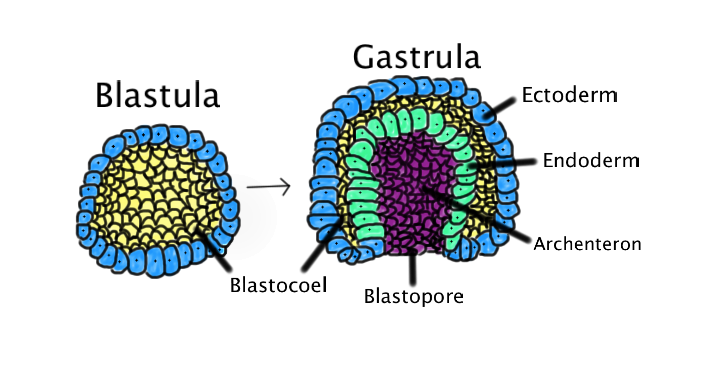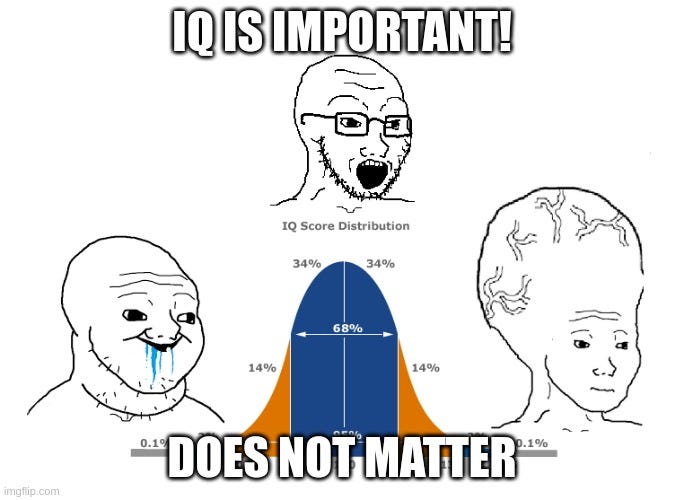This avenue of reading began like my discovery of the creator or promoter of the umbrella term ‘Man the hunter’ in two ways. It was a family hand-me down book and it was the writer’s second book.
See Robert Ardrey's The Territorial Imperative (substack.com).In Joseph Henrich’s case the second book has made a bigger splash than the first, and much more recently.
Henrich’s acronym WEIRD of the title has entered public discourse. Ardrey’s use of Petter’s use of the French term for kernal noyaux (substack.com) not so much.
We will get to WEIRD later on, but I waited to write on that until I had read Henrich’s first book, during this wait I also read Henrich’s ‘Chapter 7. The Evolution of Innovation-Enhancing Institutions’, from Innovation in Cultural Systems: Contributions from Evolutionary Anthropology, a title from the Vienna Series in Theoretical Biology. Apparently invention and innovation are not the same thing, you can invent something, but unless innovation occurs (injection into the social learning frameworks) it stays with you. (Tell me about it.)
Recently I have and will continue to read on or by Mary Douglas but this was a chance to update on broader recent anthropology. This also accounts for the recent posts on social learning and prosociality. I think it is making great strides.
Ardrey’s use of the noyau is an example of the urge which makes social learning prosocially possible BTW. Noyaux are a lead. It is not enough to say humans are a social animal, or a political animal, we need to integrate the view of that into our evolutionary explanations, otherwise we get stuck in just-so explanation about IQ or hunting or sexual-dimorphic-based social ontologies.
Henrich’s earlier book The Secret of Our Success: How Culture Is Driving Human Evolution, Domesticating Our Species, and Making Us Smarter had a small update in the latter The WEIRDest People in the World which I found useful to my positions. As first delineated by the question what is the ethical response to morality? and recently in regard to that fish-in-water-problem-where-the-fish-does-not-notice-the-water. I was glad to see Henrich used this fabulous metaphor as well.
We have trouble noticing the social aspects, regardless of whether our social categories are more individualistic or more group orientated, and regardless of whether we are more analytic or relationship based in thinking styles, those differences still describe the figure and not the ground. Even if we manage that, we will still constantly be tempted by our agency-detection-bias to remove the background to focus on either threats, or more likely in humans, learning models (parents, peers and the influencers of yore). This is why many stories focus on singular heros and and kings and orphans and celebrity, and complexity is left to ritual and mystery.
Side quest: You can see Jungian 'analysis' as doing exactly this. Prompt a LLM like ChatGPT to write up the similarities between the Jungian idea of a ‘collective unconscious’ and the world of social learning beyond the individual focus. Double XP points if you meet the mountebank Jordan Peterson punching Joseph Campbell in the mouth along the way.It is important to remember that social learning, or worlding as I call it more 'accurately' in a blur, is not a collectivity, even if you can aggregate it and map it in a LLM or similar. Collectives are just another type of individual. The world does not care about them either.
Basically The Secret of Our Success allowed me to get more up-to-date on that area of evolutionary discussion through the window of anthropology, as previously I have had more influence from primatology and ethology readings. There is more reading to be done.
I'll dived deeper now into notions of social learning, inter-group competition, and the variety of human social animal life that various ecologies and geographies, economies and histories ‘allow’.
I learned that a thousand middling intelligences can outperform in problem solving (while maintaining skills and tool-sets, both for the hand and the character down the generations and across the geography of multiple social groups) the odd genius, or a few quite bright peeps.
People get pot-holed by their local optimums however, and cannot see the whole picture. The fish cannot see the water.
This partly answers why we let grifters and narcissists surf us like the parasites that they are. We can cope with that, its a type of immorality signalling fitness, we are so good we let a narcissists lead us.... oh, dear, we've become a death cult. Selection at work.
The world will go on, even as they grind the individuals groups around them into the dirt. But this is also why ``Given enough eyeballs, all bugs are shallow''
Part of that survival is the ability to move between groups. Individuals survive better if they can move to a better group, if they have the option to do so. In most “social” animals this is very limited to individuals of a certain age and certain sex in a certain season. Species without social learning will be outcompeted by a species with social learning, in which individuals can survive in any group that would have them as a member, (more than a mini-extended noyau).
Inter-group competition allow this to occur where it allows individuals to choose, or potentially choose, which group or band or moiety they will associate with.
I call this perspective meta-anarchy.
The world is no individual, nor a collective individual or individual collective. The world is a child. So not even…
By partaking of the benefits of social learning, which is maintained by all groups in a network of inter-group competition, individuals select the better group, which can then both out-compete and increase innovation across the entire network, which individuals maintain by working in groups.
Cities and civilisation are the outcome, due to the increasing complexity over time in ideal locations (mostly rich riverlands). Later those lessons expand the city into the countryside, which is hewn out of the ‘wilderness’ into the network of human activities. These system of trade and exchange and later the parasites of war, then conflate geography and ecology into markets and economics, religion and morality.
Each new connection invaginates the prior complexity, and each invagination allows the blastula to gastrulate, just as the embryo develops into a foetus by way of further available options like involution, ingression, delamination and epiboly.
They are different ways of kneading the self out of the world and into itself, with a certain rhythm.

If that biology is too icky for you… how about the processes of star formation and death and element creation feeding into new star formation with heavier elements, and death and explosion and in this stelliferous age, new star formation with planets where clays can then form from the heavier elements as a substrates near proton flows might be more you complexification thang. And then the invagination starts, the body lit from the substrate, the medium: and the fish pretends there is no water.
Progress is thus redefined not as the march of progress but as the turbulence of erupting complexity as it infolds into the turbidity of the invaginations of complexity, …or explodes into the clays of our discontents.
This is selfing in the world, this is worlding in the self.
Both adoption and slavery are also outcomes of these prosocial processes and maintenance/s. So its not all good but it mostly is. Because we make it so.
Nothing is natural because everything is natural.
As an example of this, I particularly enjoyed in reading Henrich in learning about the repeatedly seen process in anthropology, of how chieftain clans arise out of more agreeable multi-groups (my term).
Multi-groups have managed to create a common cultural noyau, arising as part of a negotiation which each prior group becomes a ‘clan’ in the new multi-group. This multi-group has grown out of the invagination of neighbouring groups networking, no doubt in part because of some kinship, if only perceived.
Groups not included do not grow as much and in response may copy the multi-group or are absorbed later into the new “tribe”. Tribes are not foundational they are outcomes of social inclusion.
Each group in the multi-group is recognised as a clan in the negotiation, and it may then well have a speciality of ritual, perhaps as a reforming of the prior group's totem, i.e. their own ontology now incorporated into the multi-group’s social classifications which formed the tribe. One group maintains the sun for the world becoming a clan, while another maintains the bananas, another group hunts the demons of the mind becoming a priesthood.
To deal with demarcation disputes between clans, some lawyer or perhaps a bigman is held up as legitimate judge. At some point this job is assigned to one clan, who then curiously often decides in favour of the law clan, such that over time one clan ends up with all of the specialities under its belt, and they are no longer just the chief clan, and a kingship is born.
Where neighbouring groups form their own multi-groups in reaction, and become their own kingdoms, arises the chance for empire. Empires join up kingdoms that have only recently emerged from being multi-groups, the mists of time are not far away. Their ontogeny recapitulates the original invaginations with war and other imperial stupidities.
And all this process happens under the aegis of inter-group selection. English needs more words for group/s. (Band, clan, tribes, horde are not different words in this new taxonomy).
___________
Even bad ‘order’ gives an edge to social learning in some groups compared to groups who should less order into their prosociality matrices. Order, of course, is often then confused in hindsight, with boundary-keeping (here come the native boundary-riding grifters, the narcissists) and hierarchy as dominance ladders. This is the world of grid-group of which Mary Douglas speaks in relations to institutions (nodes in the worlding we self among others) and the perceptions of risk by both the each-of-us and the us-of-each. English also needs more words for one.
References
Joseph Patrick Henrich:
‘Chapter 7 The Evolution of Innovation-Enhancing Institutions’, Innovation in Cultural Systems: Contributions from Evolutionary Anthropology, Vienna Series in Theoretical Biology. 2009. Cambridge (Ma.): MIT Press.
The Secret of Our Success: How Culture Is Driving Human Evolution, Domesticating Our Species, and Making Us Smarter. 2016. Princeton: Princeton university press.
The WEIRDest People in the World: How the West Became Psychologically Peculiar and Particularly Prosperous. 2020. London: Allen Lane an imprint of Penguin Books.
Mary Douglas. How Institutions Think, The Frank W. Abrams Lectures (1st ed.). 1986. Syracuse, N.Y: Syracuse University Press.
Eric Steven Raymond. ‘The Cathedral and the Bazaar’. 1997-2000. Retrieved 30 March 2025 from http://www.catb.org/%7Eesr/writings/cathedral-bazaar/cathedral-bazaar/index.html.
Crossposted at whyweshould.loofs-samorzewski.com
See also Part TWO is the individual a social institution?







Nice post. I read the Secret of Our Success back in 2016 or 17, and it blew my mind. Had never really considered or appreciated distributed knowledge and distributed cognition before then. I feel like I should go back and read it again.